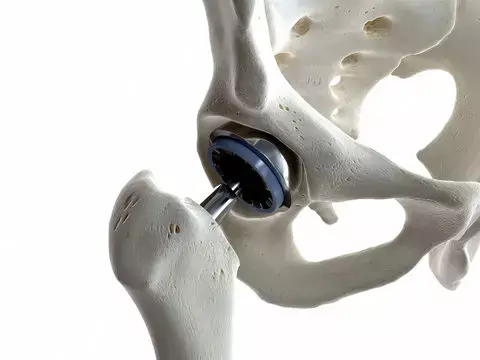- Home
- Medical news & Guidelines
- Anesthesiology
- Cardiology and CTVS
- Critical Care
- Dentistry
- Dermatology
- Diabetes and Endocrinology
- ENT
- Gastroenterology
- Medicine
- Nephrology
- Neurology
- Obstretics-Gynaecology
- Oncology
- Ophthalmology
- Orthopaedics
- Pediatrics-Neonatology
- Psychiatry
- Pulmonology
- Radiology
- Surgery
- Urology
- Laboratory Medicine
- Diet
- Nursing
- Paramedical
- Physiotherapy
- Health news
- Fact Check
- Bone Health Fact Check
- Brain Health Fact Check
- Cancer Related Fact Check
- Child Care Fact Check
- Dental and oral health fact check
- Diabetes and metabolic health fact check
- Diet and Nutrition Fact Check
- Eye and ENT Care Fact Check
- Fitness fact check
- Gut health fact check
- Heart health fact check
- Kidney health fact check
- Medical education fact check
- Men's health fact check
- Respiratory fact check
- Skin and hair care fact check
- Vaccine and Immunization fact check
- Women's health fact check
- AYUSH
- State News
- Andaman and Nicobar Islands
- Andhra Pradesh
- Arunachal Pradesh
- Assam
- Bihar
- Chandigarh
- Chattisgarh
- Dadra and Nagar Haveli
- Daman and Diu
- Delhi
- Goa
- Gujarat
- Haryana
- Himachal Pradesh
- Jammu & Kashmir
- Jharkhand
- Karnataka
- Kerala
- Ladakh
- Lakshadweep
- Madhya Pradesh
- Maharashtra
- Manipur
- Meghalaya
- Mizoram
- Nagaland
- Odisha
- Puducherry
- Punjab
- Rajasthan
- Sikkim
- Tamil Nadu
- Telangana
- Tripura
- Uttar Pradesh
- Uttrakhand
- West Bengal
- Medical Education
- Industry
Leukocyte platelet-rich plasma promotes wound healing after THA: Study

Leukocyte platelet-rich plasma (L-PRP) promotes wound healing after total hip arthroplasty (THA), suggests a study published in the Wound Repair and Regeneration.
Rapid wound closure is important after arthroplasty procedures to prevent postoperative complications. Platelets are rich in growth factors and leukocytes contribute to innate immunity.
A group of researchers from Copenhagen hypothesized that topical leukocyte platelet-rich plasma (L-PRP) derived from the blood of patients would be beneficial to wound healing.
In this randomized controlled trial, patients subjected to elective total hip arthroplasty (THA) were assigned by concealed allocation either L-PRP application onto the sutured fascia or no application (control) after the THA intervention. In addition, all patients received 1.5 g protein/kg, 5 g L-arginine, 500 mg vitamin C and 44 mg zinc daily over the 4-week postoperative period to obtain optimal nutrition.
The primary endpoint was complete healing of the skin incision. The secondary endpoints were blood transfusions, length of hospital stay, pain and wound infections.
The results of the study are as follows:
· Sixteen patients in the L-PRP group and 17 patients in the control group completed the trial.
· L-PRP treatment accelerated complete wound healing after 3 weeks (seven in the L-PRP group vs. zero in the control group) and after 4 weeks (12 in the L-PRP group vs. six in the control group).
· No postoperative superficial wound infections occurred within 4 weeks, and there were no significant differences in the other secondary outcomes.
· L-PRP generated in 10 sex-matched healthy volunteers revealed increased concentrations of platelets (5.8-fold) and leukocytes (2.3-fold) compared with those in whole blood.
· Furthermore, the concentration of keratinocyte mitogen epidermal growth factor in L-PRP (380 ± 130 pg/ml, mean ± SD) was higher) than that in serum.
Thus, the researchers concluded that a single intraoperative local application of L-PRP promoted wound healing after THA, possibly mediated by EGF receptor agonists.
Reference:
The wound healing effect of local leukocyte platelet-rich plasma after total hip arthroplasty: A randomized controlled trial by Capion S et. al published in the Wound Repair and Regeneration.
https://doi.org/10.1111/wrr.12967
Dr. Shravani Dali has completed her BDS from Pravara institute of medical sciences, loni. Following which she extensively worked in the healthcare sector for 2+ years. She has been actively involved in writing blogs in field of health and wellness. Currently she is pursuing her Masters of public health-health administration from Tata institute of social sciences. She can be contacted at editorial@medicaldialogues.in.
Dr Kamal Kant Kohli-MBBS, DTCD- a chest specialist with more than 30 years of practice and a flair for writing clinical articles, Dr Kamal Kant Kohli joined Medical Dialogues as a Chief Editor of Medical News. Besides writing articles, as an editor, he proofreads and verifies all the medical content published on Medical Dialogues including those coming from journals, studies,medical conferences,guidelines etc. Email: drkohli@medicaldialogues.in. Contact no. 011-43720751


